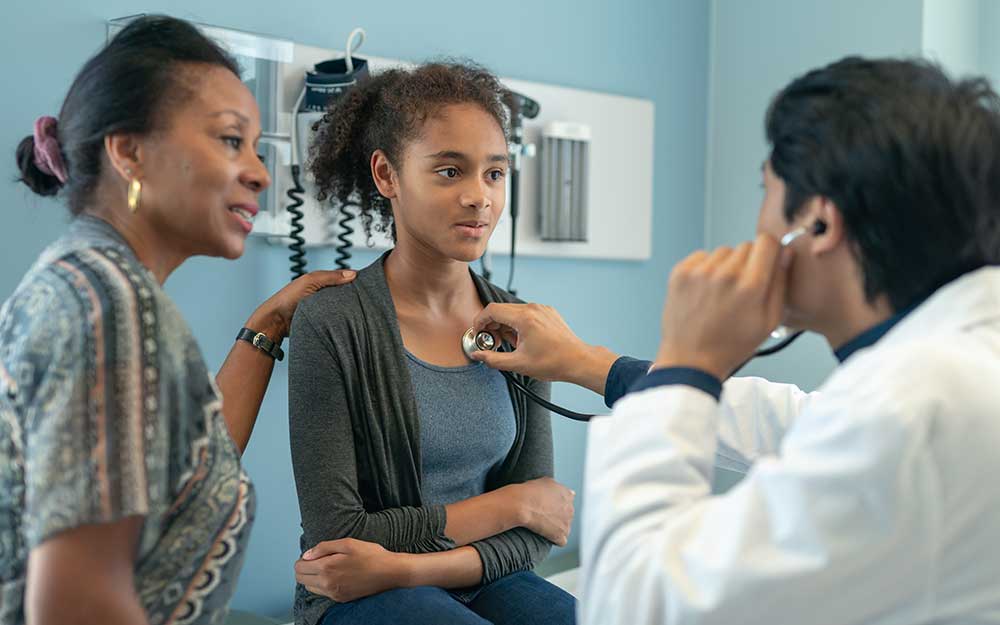One of the typical things parents check off the To Do list heading into the new school year is taking their child in for a well check or sports physical.
There are the obvious questions and concerns you think of right away to address during those appointments, such as is your child taking in enough fruits and vegetables, are there vision problems, and is their physical growth on track?
Dr. William Gerard, a physician at Rogers, says while those concerns are valid, “It’s also important to not forget about your child’s mental health. Good mental health supports good physical health.”
Dr. Gerard shares three topics he says every parent should discuss with their child’s primary care physician:
- Eating behaviors. Whether your child is 7 or 17, discussing your child’s nutrition habits is essential. This is the time to talk about any aversions to foods, pickier than normal eaters, or any restrictive or overindulging types of behaviors you might be noticing. Likewise, if you hear your child talking negatively about their appearance, dieting, or looking in the mirror constantly, that is also something worth bringing up. Discussion around these topics could help flag an eating disorder.
- Moodiness. If you’ve noticed your child has been moodier than usual or withdrawing from family and friends, that’s also important to note to your doctor. Parents of teenagers know that during these developmental years, emotions can change without warning and seemingly without reason. Dr. Gerard is quick to emphasize though that if something seems out of character for your child, it’s vital to speak up, considering that between 2007 and 2017, the number of teenagers who experienced depression increased 59%.
- Substance use. Gerard says this is a critical conversation to have for kids in middle and high school. Even if you have no concerns about your child engaging in substance use, the conversation can serve as an educational opportunity for both the parent and child, helping to curb exposure to substances at a young age, and possibly preventing substance misuse and teen addiction.
“Starting a dialogue now about these topics with your child’s primary care physician will allow room for them to ask more follow up questions to help determine if you should seek professional mental health help for your child,” adds Dr. Gerard.
Seeking help at Rogers
If you think your child might struggling with mental health and need a higher level of care, Rogers can help with evidence-based treatment for children and teens. Call 800-767-4411 or request a free, confidential screening online.


